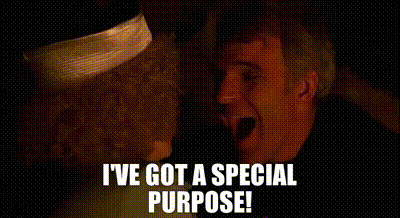A few months ago, I started hosting live Audience Builders conversations. Each week, I invite prolific creators, founders, and operators to share insights and tactics for growing audience and building community.
These conversations are a proxy for the "shop talk" that I used to have over meetups for coffee or drinks. Live social audio removed geography restrictions, and enabled anyone to join in the discussion. In a world starved for serendipity, that's a win.
My purpose for Audience Builders:
To learn from builders who I respect and admire, and to share those learnings with aspiring founders and creators.
Last week, I talked podcasting with Espree Devora and Danny Miranda. We covered the fundamentals for building a podcast audience. (Read on for those.)
But my big takeaway focused on a larger message. With any creative effort, there is an important order of operations to follow:
- Start with your purpose
- Design a process to support it
I live for good tactics. I want listeners to leave every Audience Builders with actionable takeaways. Too many podcasts and interviews stick to the 10,000 foot perspective. I strive to get down to the ten foot level, or lower if necessary.
But sometimes it helps to zoom out. Obsessing over process isn't the point. First, you need a purpose.

The idea of focusing on purpose, or "starting with why" as Simon Sinek would say, has become a cliche. But platitudes are platitudes because they're worth repeating often. So, ignore them at your peril.
Espree reminded me of this. And also of the importance of connecting your purpose with your process.
If purpose is your why, process is your how. And the why and the how should complement each other. That synchronicity will propel you forward.
The purpose is your North Star. The process is the ship that transports you towards it, and the map that guides your path.
Setting sail without a purpose puts you on a voyage to nowhere. But you're just as worse off if you define your North Star, then shred your map and turn your boat in the opposite direction.
And yet so many creators get so hung up on process, that they lose sight of their purpose.
So how do you change that?
Espree recommends aligning every part of your process to serve your purpose. She developed a framework that any podcaster or creator can put into use called "3Ps and M&M":
- Purpose
- Process
- Production
- Marketing
- Monetization
And this is crucial: each step must be completely defined before the next can begin. And every decision must tie back to your purpose.
It's easy enough to start a journey with a clear purpose. But as obstacles and setbacks crop up, you can get thrown off course and lose your way.
To avoid that, try applying mental models that can help you connect your actions and back to your values and purpose.
To start, read Julian Shapiro's excellent explainer on mental models and how you can approach them.
Then, follow Julian's advice:
Schedule a recurring event in your calendar. Every second Friday, block out 20 minutes to step back from your life and run all your systems and decisions through [these] mental models .
Apply these models to your life as if you’re improving somebody else’s life. Research shows that when you act like you’re giving a friend advice, you sidestep your flow paralysis.
That’s all it takes to get started: every week, run your life through mental models as if you’re assessing somebody else’s life.
I've recently integrated this practice into my routine. I can already feel the benefits of newfound perspective. So give it a try for yourself.
Still curious about podcast tactics? Here are the other big takeaways from talking to Espree and Danny:
Map out your listener's journey
Create a diagram or written story describing your audience's experience. Start with how they discover you, then how they consume your work, and what they do next.
Understanding this will align your process, production, and marketing to serve your listeners best.
Espree recommends a mind-mapping tool called Scapple, but pencil and paper also work.
Focus on hosting style
Listeners might sample a podcast based on a topic or guest, but they stick around because of the host.
So work to define your hosting style. What do you bring to the table that is unique or memorable? And make sure to align your hosting style back to your purpose.
Research to bring out the best in guests
Danny Miranda established his podcast by booking huge guests like Gary Vaynerchuk and some guy named "Dave Nemetz." While Danny embraced "shooting his shot" to land guests, his research is what transforms every interview into a must-listen.
Danny recommends devouring each guest's previous podcast appearances and interviews. This uncovers interesting factoids to discuss, but also helps you avoid the same cliche questions. The goal is to put your guest at ease by showing you know their work, while still keeping them on their toes.
Ignore the metrics
I'm an analytics junkie, but I loved this advice. Podcast metrics are limited. Instead of obsessing over them, focus on quality content, engaging your audience, and following your purpose.
Create feedback loops
For a podcast, qualitative feedback reigns supreme over quantitative. Espree recommends building post-audio experiences that turn your listeners into a community. Once activated, a community can give you feedback for improvement and even take on a life of it's own.
Check out tools like Geneva Chat and Circle to build your podcast community.
For even more tools, processes, and resources, Espree recommends Josh Kaplan and Janel Loi's PodcastOS.



